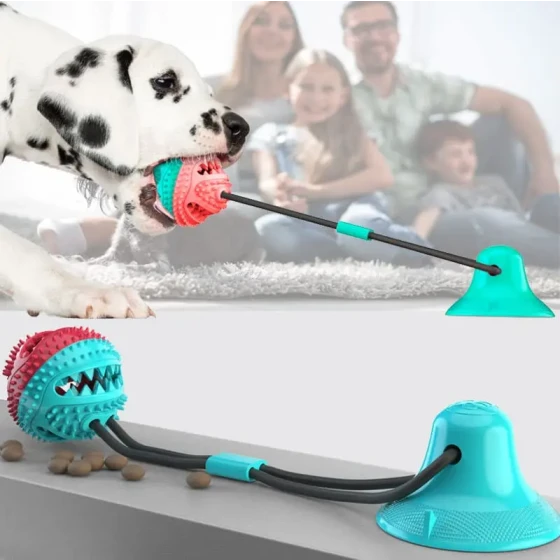How to Nourish Dogs with Calcium Deficiency
Dogs grow rapidly and require a large amount of calcium, so proper calcium supplementation is very important! However, many owners wonder why their dogs are calcium deficient when they are clearly eating well. What should be done if a dog has calcium deficiency?
Before supplementing calcium for your dog, you first need to determine whether the dog is calcium deficient and the cause of the deficiency. Only then can you supplement calcium timely and effectively, right?

Labrador Retriever
So, how to determine if a dog is calcium deficient?
Calcium deficiency in dogs manifests as reduced appetite, easy digestive problems, gradual weight loss, and slow growth. Typically, calcium-deficient dogs are smaller and have less solid bones compared to healthy dogs of the same age.
Dogs with calcium deficiency can also develop leg deformities similar to humans, such as X-shaped or O-shaped legs. Severe calcium deficiency can cause dogs to walk with bent legs or even result in paralysis.
Why do dogs become calcium deficient?
1. Insufficient calcium content in food: Feeding dogs food with inadequate calcium content causes calcium deficiency.
2. Poor absorption: Although the food contains enough calcium, dogs with poor absorption ability, such as those with enteritis or poor appetite, may develop calcium deficiency.
3. Poor calcium metabolism: Even if the dog absorbs enough calcium from food, poor calcium metabolism in the body causes excessive calcium excretion and deficiency.
4. Long-term feeding of animal liver or meat: Animal liver and meat contain very low calcium and high concentrations of vitamin A, which inhibits calcium absorption.

Schnauzer (detailed introduction)
What should be done if a dog is calcium deficient?
Proper calcium supplementation can include feeding dogs some specialized calcium powder at appropriate doses, as well as offering dairy products and cartilage while reducing the intake of animal liver or meat.
If a dog already shows symptoms of calcium deficiency, medical treatment is necessary. It is recommended to choose affordable calcium carbonate or calcium lactate, along with injections of vitamin D3 and oral vitamin D2 and D3 tablets. Of course, if conditions allow, imported brand pet calcium products can also be selected because these products tend to be more professional.
Calcium supplementation for dogs differs from humans, and few people know exactly how much calcium a dog needs, which often results in under- or overdosing. The exact calcium amount depends on the breed, size, age, and deficiency condition of the dog, so it is best to consult a professional veterinarian at an animal hospital.

Poodle
Calcium deficiency in dogs has significant impacts and must be taken seriously!
1. Puppies 2-3 months old: The age of 2-3 months is critical for intervertebral disc formation. Deficiency during this time can cause breeds prone to disc diseases, such as Pekingese, Shih Tzu, Pug, and French Bulldogs, to develop problems in adulthood, causing lifelong suffering.
2. Puppies 4-6 months old: At 4-6 months, deciduous teeth begin to fall out and permanent teeth begin to grow. Calcium deficiency at this stage can cause retained baby teeth, slow permanent tooth growth, thin enamel, weak structure, and issues such as double rows of teeth or uneven permanent teeth. These dogs are prone to bad breath and gingivitis as adults, directly affecting their lifespan.
3. Stud dogs and pregnant/lactating females: Semen, embryos, and milk production cause significant calcium loss. Without timely supplementation, the body’s calcium reserve is mobilized, causing osteoporosis. Lactating females can suffer acute postpartum calcium deficiency, with symptoms including limb spasms, full-body rigidity, body temperature above 40℃, and even coma or death.
4. Elderly dogs: Calcium deficiency leads to osteoporosis, increasing the risk of bone spurs and fractures.
Calcium deficiency harms dogs greatly and causes significant suffering. As owners, what we can do is properly supplement calcium to ensure normal calcium absorption and healthy growth for our dogs!~
-560x560.webp)


